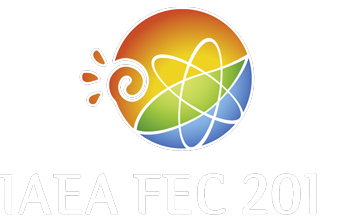Speaker
Prof.
Geert Verdoolaege
(Ghent University)
Description
The standard scaling law for the global energy confinement in H-mode tokamak plasmas provides a guideline for machine design and planning of operational scenarios. In addition, it is used as a benchmark to assess the quality of confinement in present experiments. However, owing to the complexity of the multi-machine data sets from which the scaling is derived, the coefficient estimates may vary considerably, depending on the regression method used to establish the fit. This necessitates a robust analysis of the confinement scaling law. For this purpose we have developed a new regression technique that is robust in the presence of significant uncertainty on all variables as well as the regression model, and that can handle outliers in the data. The technique, called geodesic least squares regression (GLS), is shown to yield consistent results in estimating the confinement scaling, in contrast to standard ordinary least squares (OLS). Furthermore, some of the coefficients estimated by GLS are significantly different from those given by OLS, particularly those corresponding to the geometrical properties of the plasma. Furthermore, the method is shown to enable direct estimation of the scaling in terms of physical dimensionless variables. Hence, GLS is a powerful regression method that is able to deliver the level of robustness required for scaling in multi-machine databases, and in general in situations with limited knowledge about the regression model or substantial measurement uncertainty on all variables. The method is easily implemented and is hoped to be also of use in many other applications involving regression analysis in fusion science.
| Country or International Organization | Belgium |
|---|---|
| Paper Number | EX/P3-31 |
Author
Prof.
Geert Verdoolaege
(Ghent University)

